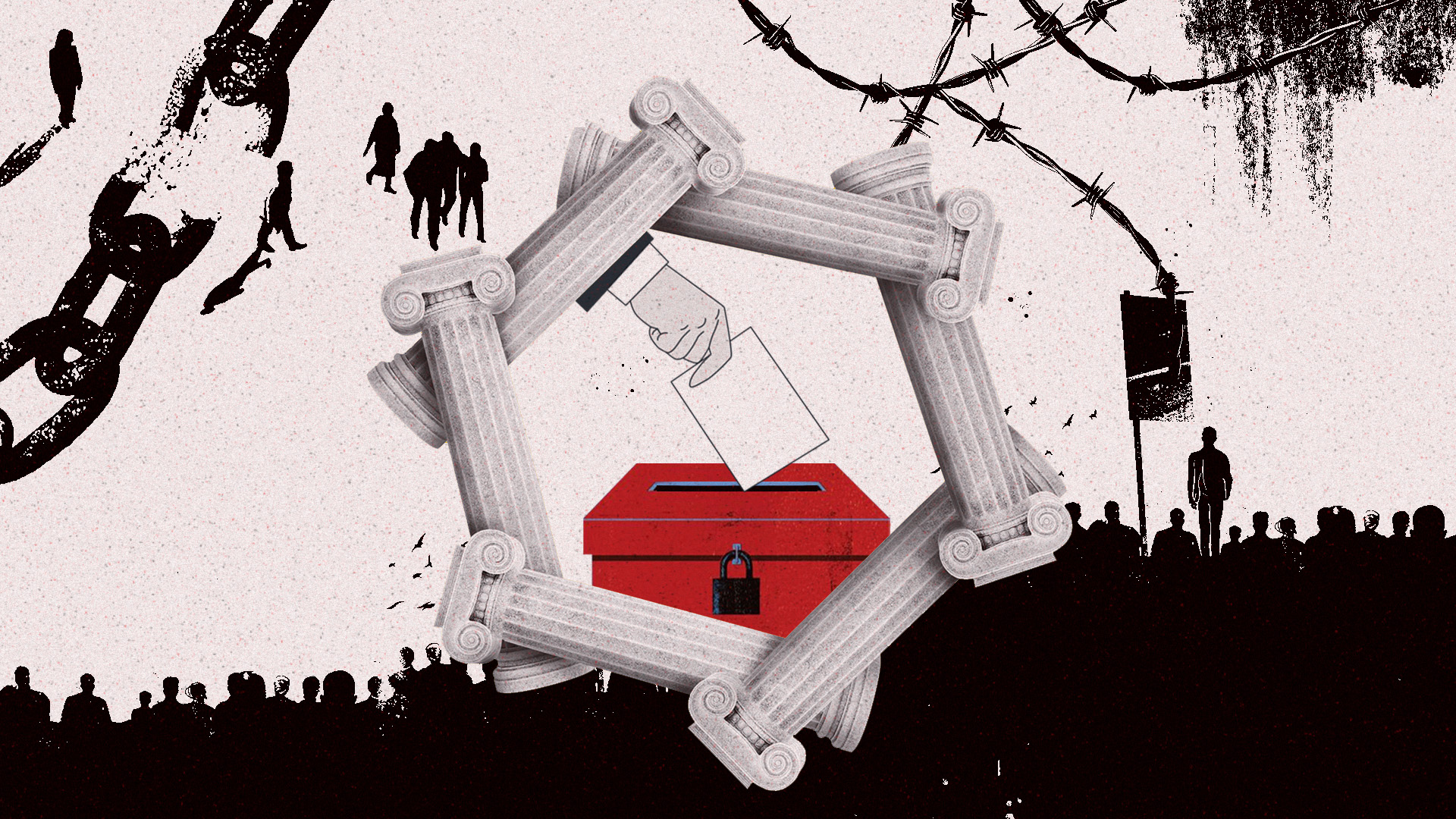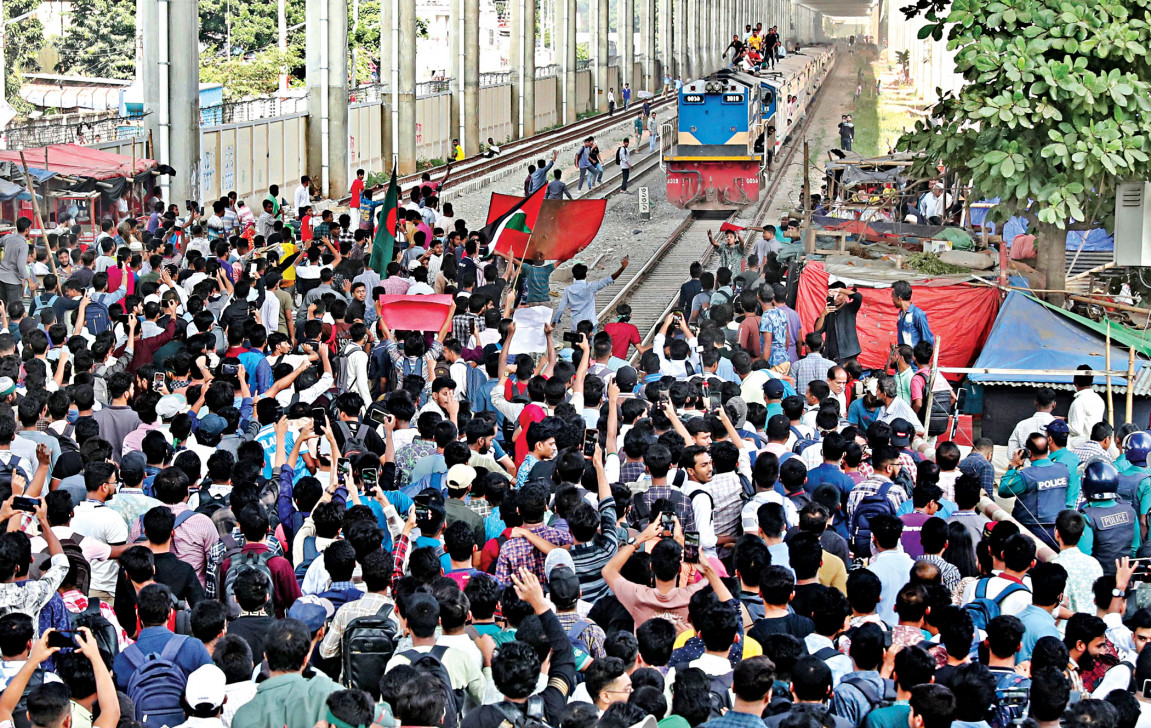National consensus cannot be built without youth voices

In a country where the youth played a decisive role in toppling an authoritarian regime through a mass uprising in July-August 2024, one might expect a wave of political engagement among the younger generation. But reality defies that hope. A recent survey by the South Asian Network on Economic Modeling (SANEM), in collaboration with ActionAid Bangladesh, reveals that 82.7 percent of youth in the country, particularly first-time voters, are not interested in participating in politics; only 1.6 percent are currently involved. While I do not have comparative data from the pre-2024 period, given the severity of that era's political repression, it is safe to assume the numbers were no better. This sharp disconnect between democratic aspiration and political disinterest raises serious questions about who truly represents the youth in today's Bangladesh, especially as major political dialogues seem to move forward without them.
This column is not intended as a critique of the above-mentioned survey itself, though one might acknowledge its methodological limitations, including concerns about sampling and bias. Rather, the survey invites a deeper question about how political representation is being structured in the present moment. In particular, it raises concerns about the legitimacy of the National Consensus Commission (NCC), where political parties are engaged in high-level dialogues aimed at shaping the country's future. Surprisingly, few people are interrogating the representational claims these parties make, or questioning whether they genuinely speak for the majority of citizens, especially the youth.
The NCC was formed in February this year to coordinate national dialogues around reform proposals prepared by the reform commissions. These dialogues have involved established political parties who are presumed to speak on the people's behalf. During the first round of discussions, 45 sessions were held with 33 parties and coalitions, including the BNP, Jamaat-e-Islami, NCP, CPB, Nagorik Oikya, Ganosamhati Andolon, Gono Odhikar Parishad, and AB Party. A second round is now underway with a similar lineup. This continuity is troubling in light of what the SANEM report reveals.
Although 82.7 percent of young people reported to have no interest in political affairs, as first-time voters, they have a legitimate stake in shaping the country's future. Their overwhelming disinterest in politics suggests that they do not see themselves represented by the current political class.
When someone shows no interest in participating in a political activity led by groups that nevertheless claim to speak on their behalf, the outcome is both misrepresentation and paternalism. The political parties currently in dialogue with the NCC are widely regarded as people's representatives. Yet, if the youth, who make up more than one-fourth of the country's population, are not only disengaged from politics but also disinterested in the very parties that dominate the political arena, their so-called representation is a fiction. Representation by those in whom the supposed constituents have no interest constitutes a fundamental misrepresentation.
Misrepresentation is always a serious concern. But it becomes even more dangerous when it involves being represented by actors in whom one has no trust or interest, a condition that undermines the moral legitimacy of representation itself. While disinterest does not always stem from distrust, the likelihood that it does, given Bangladesh's long history of political dysfunction, cannot be dismissed. If young people avoid political participation because they do not trust the system or its actors, having their voices replaced by those very actors constitutes the worst kind of substitution.
This misrepresentation becomes particularly dangerous for the youth because it grants political legitimacy to actors they neither trust nor engage with. These actors are then allowed to make decisions that will profoundly shape the younger generation's future. When youth disengagement is rooted in political disillusionment, replacing their silence with the voices of untrusted proxies only compounds the problem. The result may be policies that not only ignore the younger generation's needs and aspirations but also deepen their political alienation. In such a context, the appearance of inclusive dialogue serves only to mask a deeper democratic deficit.
Rather than earning the youth's trust and participation, these parties behave as though that trust already exists. They engage in high-stakes dialogues such as the national consensus talks without any actual mandate from this generation. This reduces the young people from autonomous political agents to passive subjects in need of guidance. In doing so, the parties deny them the moral and political agency to decide who should speak for them, what issues matter to them, or whether they want to participate at all. That is the essence of paternalism: assuming authority over another's interests while bypassing their voice.
For instance, youth-led community organisations that played crucial roles during the uprising, such as organising protests and disseminating information, have been notably absent from these national discussions. Their exclusion reinforces the idea that only party-affiliated voices matter in shaping the future, sidelining precisely those who mobilised for change but do not conform to traditional political structures.
If inclusiveness is truly the goal, the process must expand beyond party-based representation. The NCC cannot credibly claim to build a new political settlement while ignoring those who do not see themselves reflected in the existing political architecture. Dialogues, therefore, must include independent youth representatives and others who speak from outside traditional party lines. Only by engaging directly with those currently excluded from political participation can any claim to inclusivity or legitimacy be sustained.
If the youth have withdrawn from politics out of disillusionment, then their absence from state-building conversations is not apathy. It is a message, a call to rethink who gets to represent whom, and how legitimacy is constructed in a post-uprising democracy. Without earning the trust of the youth or reforming the structures that have failed them, political actors risk building a future on foundations that the next generation has already rejected. A new political settlement cannot emerge by speaking on behalf of those who remain unheard; it must begin by listening to those who have gone silent.
Dr Kazi ASM Nurul Huda is associate professor of philosophy at the University of Dhaka. He can be reached at huda@du.ac.bd.
Views expressed in this article are the author's own.
Follow The Daily Star Opinion on Facebook for the latest opinions, commentaries and analyses by experts and professionals. To contribute your article or letter to The Daily Star Opinion, see our guidelines for submission.




 For all latest news, follow The Daily Star's Google News channel.
For all latest news, follow The Daily Star's Google News channel. 

Comments